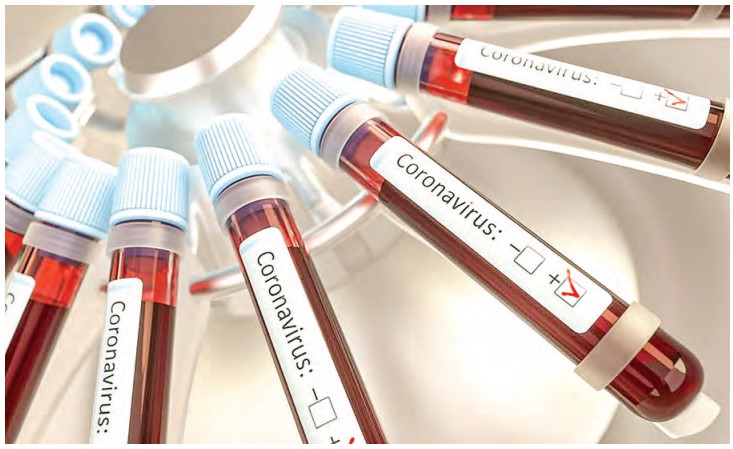March 10
A NEW study has analyzed over 3,000 proteins to identify which are causally linked to the development of severe COVID-19. This is the first study to assess such a large number of proteins for their connection to COVID-19.
The findings of the study will provide insight into potential new targets for approaches to treat and prevent severe COVID-19.
The study was led by the National Institute for Health Research (NIHR) Maudsley Biomedical Research Centre and was published in the journal, ‘PLOS Genetics’. The study used a genetic tool to screen over 3,000 proteins. Researchers identified six proteins that could underlie an increased risk of severe COVID-19 and eight that could contribute to protection from severe COVID-19.
One of the proteins (ABO) that was identified as having a causal connection to the risk of developing severe COVID-19 determines blood groups, suggested that blood groups play an instrumental role in whether people develop severe forms of the disease.
Purely genetic approach
Co-first author Dr Alish Palmos from Institute of Psychiatry, Psychology & Neuroscience (IoPPN) King’s College London said, “We have used a purely genetic approach to investigate a large number of blood proteins and established that a handful have causal links to the development of severe COVID-19.
Honing in on this group of proteins is a vital first step in discovering potentially valuable targets for development of new treatments.”
Assessing how blood proteins are linked to disease can help understand the underlying mechanisms and identify potential new targets for developing or repurposing drugs. Protein levels can be measured directly from blood samples but conducting this type of research for large numbers of proteins is costly and cannot establish causal direction.
This is where genetics can play a role. Mendelian randomization, a method of comparing causal relations between risk factors and health outcomes, using large genetic datasets can assess the relationship between genetic variants connected with an exposure (in this case high levels of individual blood proteins) and genetic variants connected with disease outcome (in this case severe COVID-19).
Inherited from parent to offspring
Co-first author Dr Vincent Millischer from the Medical University of Vienna explained, “Causality between exposure and disease can be established because genetic variants inherited from parent to offspring are randomly assigned at conception similar to how a randomised controlled trial assigns people to groups.
In our study the groups are defined by their genetic propensity to different blood protein levels, allowing an assessment of causal direction from high blood protein levels to COVID-19 severity whilst avoiding influence of environmental effects.”
The study considered two incremental levels of severity of COVID-19, hospitalization and respiratory support or death. Using data from a number of genome-wide association studies the researchers found six proteins that were causally linked to an increased risk of hospitalization or respiratory support/death due to COVID-19 and eight causally linked to protection against hospitalization or respiratory support/ death. Analysis showed some distinction in types of proteins linked to hospitalization and those linked to respiratory support/death, indicating different mechanisms may be at work in these two stages of disease.
The analysis identified that an enzyme (ABO) that determines blood group was causally associated with both an increased risk of hospitalization and a requirement for respiratory support. SOURCE: ANI


